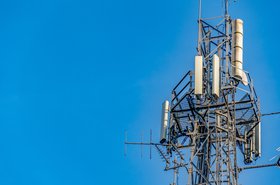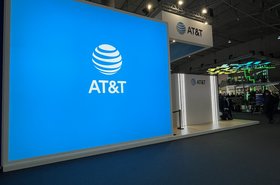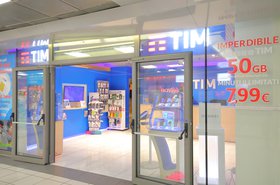Vodafone has commenced deployment and installation of Open RAN equipment in 2,500 sites across Wales and the Southwest of England.
The technology will be used to replace legacy Huawei technology, as the operator works towards its target of removing all High-Risk Vendor (HRV) technology from the Radio Access Network within government timelines.
Open RAN is the latest development of Radio Access Networks (RANs), which connect mobile devices to the core network via base stations.
The technology effectively allows for a new breed of telecoms kit that allows providers to ‘mix and match’ solutions from multiple vendors.
Vodafone first revealed its Open RAN ambitions in December, when it announced plans to install the technology on 16 mobile masts in Exmouth and Torquay, Devon.
In a statement today (August 31), Vodafone said that it has partnered with several companies for its Open RAN rollout including Samsung, Intel, Keysight, Dell Technologies, Capgemini, and Wind River.
“The rapid innovation we have seen in the Open RAN ecosystem is truly remarkable. The industry only started working on this concept in 2016 in earnest, so to see KPIs align to traditional technology is a testament to the work which has been done," said Andrea Dona, chief network officer, Vodafone UK.
“Vodafone has been at the forefront of the Open RAN ecosystem since day one. Open RAN is a central pillar of our network strategy for numerous reasons. Most importantly, we see this as a vehicle for transformation, opening doors that would otherwise have been closed.”
“The UK government is determined to strengthen the security and resilience of vital network infrastructure by protecting technology critical to the future digital economy and boosting competition and creativity within the telecom supply chain," added Sir John Whittingdale, Minister of State for Media and Data, Department for Science, Innovation, and Technology.
Vodafone had been forced to rethink its 5G rollout following the UK government's ban on Huawei back in 2020, giving UK telcos until 2027 to remove Huawei 5G equipment entirely.
Speaking to DCD a couple of months back, Dona confirmed Vodafone's swap out of Huawei's equipment from its 5G network is going according to plan, though admitted the situation has severely slowed down Vodafone's 5G rollout in the UK.
"Although it's going to plan, it has slowed us down considerably on our 5G rollout, because we can't rollout out 5G with Huawei as we would have otherwise been able to do. We have to swap before we can roll out," said Dona in June.
"If you've got an existing Huawei site, such as 2G, 3G, or 4G, and you want to put 5G there, you can't just do that as you have to rip this up and replace it, and is obviously much more costly, intrusive, and therefore slowed us down. So when I say Vodafone is on track, we're on track with the slowed down plan [removing Huawei kit]."
Vodafone is one of a number of European telcos intent on developing Open RAN networks and is working with other major European operators Deutsche Telekom, Orange, Telecom Italia (TIM), and Telefónica, to establish Open RAN as the basis for future mobile networks.
The five operators are in the O-RAN Alliance, a global body pushing open, virtualized, and fully interoperable networks.
The alliance currently has 32 mobile network operators on board, with 323 Open RAN companies in total, according to its website, and was founded in 2018 by AT&T, China Mobile, Deutsche Telekom, NTT Docomo, and Orange.






